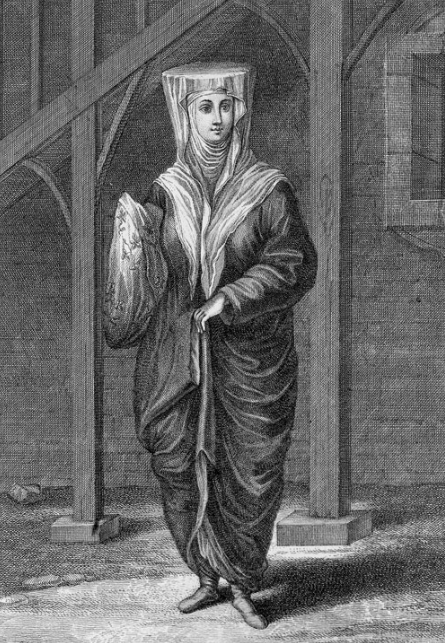Is The Calcutta Quran Petition True To Its Conviction (2)


In this article, we continue to explore the revelations from Quran in a systematic manner, as they are approached by the petition. This is in continuance with the previous article, the link of which is shared at the end of this article.
Marriage with Zainab: Zaid Bin Haris was a slave of the Prophet’s first wife Khadija. The Prophet freed him as he agreed to convert, married him off and then they joined the Prophet when he left for Madina. Zaid’s wife was Zainab Bint Jahsh. One day the Prophet went to visit Zaid, and finding that he was not at home, decided to wait for him at his house. His daughter in law Zainab was not properly dressed and when the Prophet saw her, he fell in love with her. When Zaid found out about the infatuation of the Prophet, he decided to divorce Zainab. There was a lot of talk among the people as it was considered immoral to marry the wife of one’s son, even if the son was adopted. The verses 33.4-5, 59.37-40 were then revealed, which ordained that the Prophet should follow his heart’s desire in matters of sex, and that Zaid was not his own son but the son of his (Zaid’s) natural father. The dilemma stood resolved. It also made adoption prohibited in Islam.
Saudah avoids divorce: After the death of Prophet’s first wife Khadijah, and a year before migration to Madina, he had married an older widow called Saudah. Afterwards, he married 5 other women in the next five years – Aisha, Hafsa, Zainab bint Khuzayma, Umm Salama, and Zainab bint Jahsh. He had assigned a day to each wife, but then he got tired of Saudah, and proceeded to divorce her, so that he could spend more time with Ayesha. Saudah offered to forfeit her in favor of Ayesha and that is how she stayed married to the Prophet. Verse 33.51 was revealed to state that that the Prophet was free to do with his wives as he pleased.
Aisha rescued from scandal: In the same year that the Prophet married his adopted son’s wife Zainab, there was another incident which set the tongues wagging in the community. Additionally, it was this incident whythe requirement for 4 eye witnesses for assault and rape came about. While accompanying the Prophet on an expedition, his favorite Ayesha got left behind by mistake. She reached Madina the next morning, riding on the camel of Safwan. Ayesha said she was searching for her lost necklace, while Safwan had to go after his camel who had run away. People of Madina including Prophet’s nephew and son in law, Ali, started that the very young wife of an old man was involved in romance with a youth of her own age. The Prophet was too fond of Aisha to be swayed by Ali’s considered opinion that he should divorce her, and that there was no dearth of beautiful young women wanting to join his harem. Verses 24.1-20 were then revealed prescribing whipping for those found guilty of accusing married women of adultery without producing four eyewitnesses.
Massacre of Banu Qurayza Jews of Madina: After dealing with Banu Qaynuqa and Banu Nazir, it was the turn of the last Jew tribe of Madina, the Banu Qurayza. After the Battle of Trench, verses were revealed asking them not to lay down arms without finishing the Banu Qurayza, as the Prophet found out that they were doing negotiations with the foes from Makkah. So Banu Qurayza were besieged, and starved into surrender. All adult males of Banu Qurayza were killed and women and children were sold into slavery. The market place in Medina was drenched in the blood of 900 Jews who were slaughtered non-stop during the night by the Prophet’s stalwarts, particularly Ali and Zubayr; their women and children were sent to Egypt to be sold as slaves in exchange for horses and arms. The properties in the valley of Khayber which belonged to the tribe, was divided between the Prophet and his Ummah making them quite rich. In addition, the Prophet found and then married Safiya Bint Huey, the daughter of the head of Banu Quraizah. Safia lost both her husband and her father in this massacre. The Prophet married her and then stayed there for 3 days with her. The accomplices of the Prophet were fearful that Safiya might take revenge for the death of her brother and husband, and so they stood guard outside the tent of the Prophet on all three nights. Verses 33.13-14, 26-27 were revealed to bless this enterprise.
(This is the 6th article from an ongoing series of articles on The Calcutta Quran Petition. The series will continue)
Part 1:
Part 2:
https://kreately.in/the-calcutta-quran-petition-responses-of-government/
Part 3:
https://kreately.in/what-was-the-response-of-the-judiciary-on-calcutta-quran-petition/
Part 4:
https://kreately.in/how-the-judgment-on-calcutta-quran-petition-completely-missed-the-main-point/
Part 5:
DISCLAIMER: The author is solely responsible for the views expressed in this article. The author carries the responsibility for citing and/or licensing of images utilized within the text.
